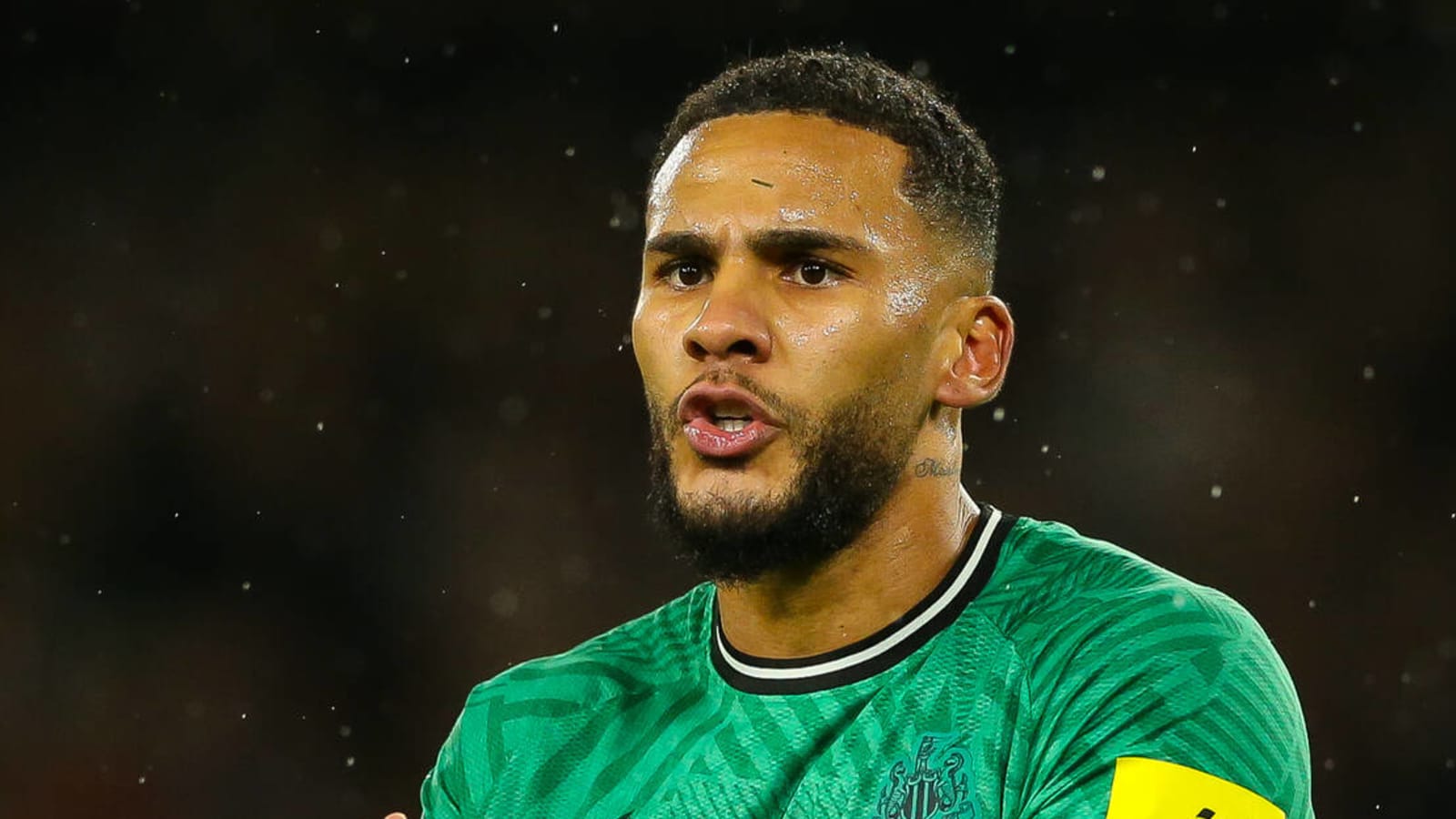
'Absolute disgrace' or business as usual? Breaking down the Arsenal-Newcastle controversy
When the final whistle blew at St. James's Park on Saturday, Arsenal captain Jorginho refused to shake the hand of his Newcastle counterpart, Jamaal Lascelles.
"I was fuming," Lascelles said, per Sky Sports. "I would never refuse to shake an opposition's captain's hand, no way."
Jorginho's problem? A tricky Newcastle goal that saw the Magpies beat Arsenal in controversial style.
"You have to talk about how the hell this goal stands," Arsenal coach Mikel Arteta said after the match, per The Guardian. "It's incredible. I feel embarrassed ... it's an absolute disgrace that this goal is allowed."
While emotions often flare in Premier League soccer, especially in tightly run matches at the top of the table like this one, the fury over Newcastle's goal — and Arsenal's reaction — has taken many by surprise.
But what happened? Why was it so controversial? And what, if anything, can be done to calm the teams down?
The goal. Newcastle's Anthony Gordon scored after a cross bounced off Arsenal defender Gabriel in his own penalty box. At first glance, it's a messy but fair goal.
Gordon!
— NBC Sports Soccer (@NBCSportsSoccer) November 4, 2023
Newcastle go 1-0 up on Arsenal. #NEWARS
@NBC & @peacock pic.twitter.com/rZ2pJbQlVf
The controversy. Look closely at the run of play, however, and you'll see two different incidents that Arsenal believes should've rendered the goal invalid. The first happens immediately, right before cross is kicked. For a moment, the ball appears to cross the boundary line and move out of play.
The second happens in the box, when Gabriel moves to defend the ball. He falls in the process, and slow-motion replays show that he was pushed — by Newcastle midfielder Joelinton.
Either of those two incidents could've cancelled out the goal. Video-assisted refereeing (VAR) exists in soccer to help on-field referees make correct decisions. In this case, the referee allowed the goal, but VAR could've — and, in Arsenal's mind, should've — caught both incidents and demanded the call be overturned.
That didn't happen. Video replays weren't able to conclusively prove that a) the ball had fully left the field of play or b) Gabriel was fouled. Because of that, the referee's initial call to award the goal stood, and Arsenal was left fuming.
The next steps. So what's the truth here? Was Arsenal the victim of a refereeing scandal?
The short answer is no. Arsenal has no recourse here. Soccer is a messy and imperfect sport, and it doesn't always throw up clear-cut decisions for referees.
In this case, the referee made the correct call based on the information he was given, and while Arsenal fans are within their rights to feel wronged by that, talks of their team being the victim of scandal are laughably overblown.
In fact, the biggest takeaway from the world's fascination with this goal is that we might all need to reconsider our relationship with video-assisted refereeing.
It's a valuable tool but not a perfect one, and even if it were capable of delivering inch-perfect decisions on every controversial call in the sport, it'd still face judgment and doubt from aggrieved fans.
In this case, Arsenal can feel hurt by this unlucky break, but honestly, it should be more concerned with the ugly truth no Arsenal fans are mentioning: that in 90+ minutes of additional gameplay, their team failed to score a single goal.
That's the solvable problem for Arsenal and Mikel Arteta. The controversy over Newcastle's goal is merely a distraction: a smokescreen hiding Arsenal's woeful gameplay against the Magpies.
More must-reads:
- Arsenal issue statement following Mikel Arteta’s post-Newcastle outburst
- Arteta should be angry with himself after Newcastle defeat, not VAR
- The '2015 USWNT FIFA Women's World Cup team' quiz
Breaking News
Customize Your Newsletter
 +
+
Get the latest news and rumors, customized to your favorite sports and teams. Emailed daily. Always free!

